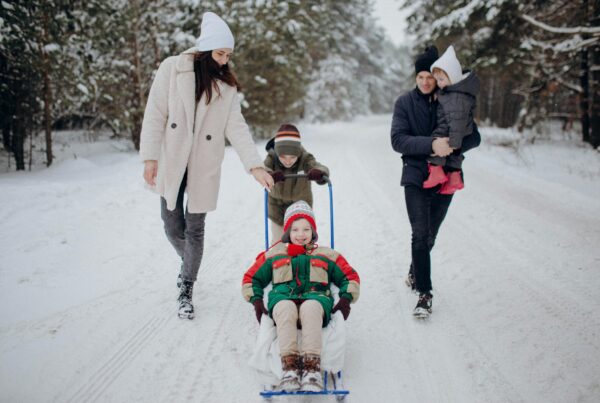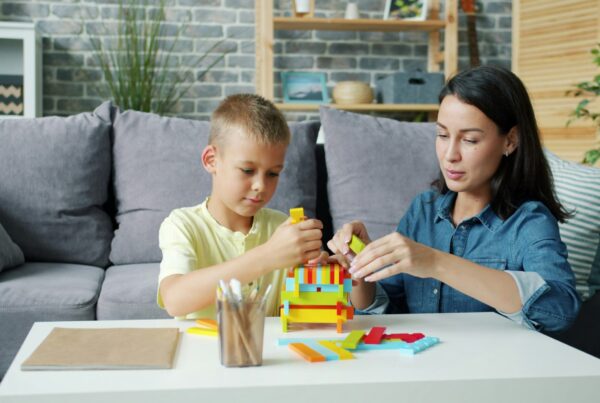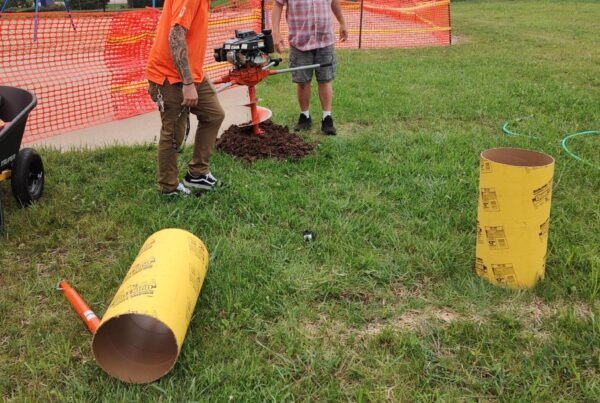Indoor Activities for Children with Autism: Tips for a Joyful Winter
By: Regan Jarrett, Director of Quality Assurance at Chileda
Winter often is an exciting time for families to engage in more indoor activities and programming. For families with children with Intellectual and Developmental Disabilities (IDD) or autism, finding enjoyable activities that promote emotional regulation and skill development can be a challenge. Here are some tips and tricks to help you create a fun and supportive environment for your child this winter season.
Activities to Try:
1. Sensory Play – Engage your child’s senses through therapeutic play. For children with autism and other cognitive disabilities, sensory play could improve communication capabilities, reduce anxiety, enhance social skills, and provide many other benefits. Here are a few sensory play activities to consider as part of your winter routine.
-
- Sensory Bins: Customize these creative tools around topics your child enjoys. This helps them explore and discover while staying in one location.
-
- Playdough: A versatile medium for tactile stimulation that lets them work with their hands.
-
- Water Play: Simple and soothing, water play can be both fun and calming.
2. Arts and Crafts – Foster self-expression and improve fine motor skills.
-
- Finger Painting: A messy but delightful way to create art.
-
- Stickers: Easy and engaging for fine motor practice.
-
- Crafts Around Interests: Tailor craft projects to your child’s specific interests to keep them engaged. For example, if your child loves monster trucks – a good craft may involve building a road map to drive their monster trucks on.
3. Music and Movement – Has shown to promote self-regulation, physical activity, and emotional expression. For individuals with autism spectrum disorder (ASD), music and movement can potentially improve cognitive development too.
-
- Dancing: A great way to burn energy and express emotions.
-
- Small Instruments: Instruments like maracas or drums can be both fun and therapeutic.
4. Building and Sorting – Improves focus and aids in cognitive skills development.
-
- Sorting Objects: Sorting by color, shape, or size can be calming and educational.
-
- Legos and Building Blocks: Encourage creativity and fine motor skills.
-
- Puzzles: Great for improving focus.
5. Imaginative Play – Foster creativity and social skills. This is a wonderful way to build self-esteem and confidence in your autistic child.
-
- Dress Up: Encourage role-playing and creativity.
-
- Storytelling Through Toys: Use toys to create and tell stories.
-
- Pretend Store or Kitchen: Interactive play that can teach many practical life skills.
6. Story Time – Build language and intellectual skills.
-
- Interactive Books: Books that involve touch, sound, or movement can be impactful.
-
- Audiobooks: Choose stories that align with your child’s interests.
7. Yoga and Relaxation – Promote mindfulness and self-regulation skills.
-
- Deep Breathing Exercises: Simple techniques to help calm the mind.
-
- YouTube Videos: Guided relaxation and yoga sessions.
-
- Weighted Blankets: Provide comfort and a sense of security.
Tips for Success
- Follow Your Child’s Interests: Observe what your child pays attention to and tailor activities around those topics.
- Create a Schedule: Children with autism and other developmental challenges benefit from structure throughout their day. Routines help provide predictability and comfort.
- Allow Breaks: Pay attention to your child’s body language and behavior to know when they need a break.
- Use Positive Reinforcement: Celebrate accomplishments and positive behavior to build your child’s confidence and motivation.
By engaging in these activities, you provide opportunities for skill-building, sensory regulation, and meaningful connections. Remember, every child is unique, so adapt these suggestions to fit your child’s specific needs and preferences. Most importantly, have fun together.
Regan Jarrett, Director of Quality Assurance, has been with Chileda for over 5 years. Since 2017, she has worked in a variety of roles at the Chileda Learning Center in Lacrosse, WI that include: Direct Support Professional, Lead Direct Support Professional, Special Education Teacher and Adapted Physical Education Teacher.
Read Regan’s personal statement below:
“As the Director of Quality Assurance, I’m dedicated to ensuring high standards in everything I do. When I’m not focused on quality and improvement, I love spending time with my husband and our beloved pets. You’ll often find me enjoying a good book, exploring hiking trails, weightlifting, or unwinding with a favorite movie. I’m excited to connect with our wonderful community of parents, caretakers, and neighbors through this blog.”
*The information provided on this blog is for general informational purposes only and does not constitute medical or professional advice. Chileda, Inc. strives for accuracy but is not responsible for errors or omissions. Chileda Inc. disclaims any liability for any losses or damages arising from the use of this blog site.



